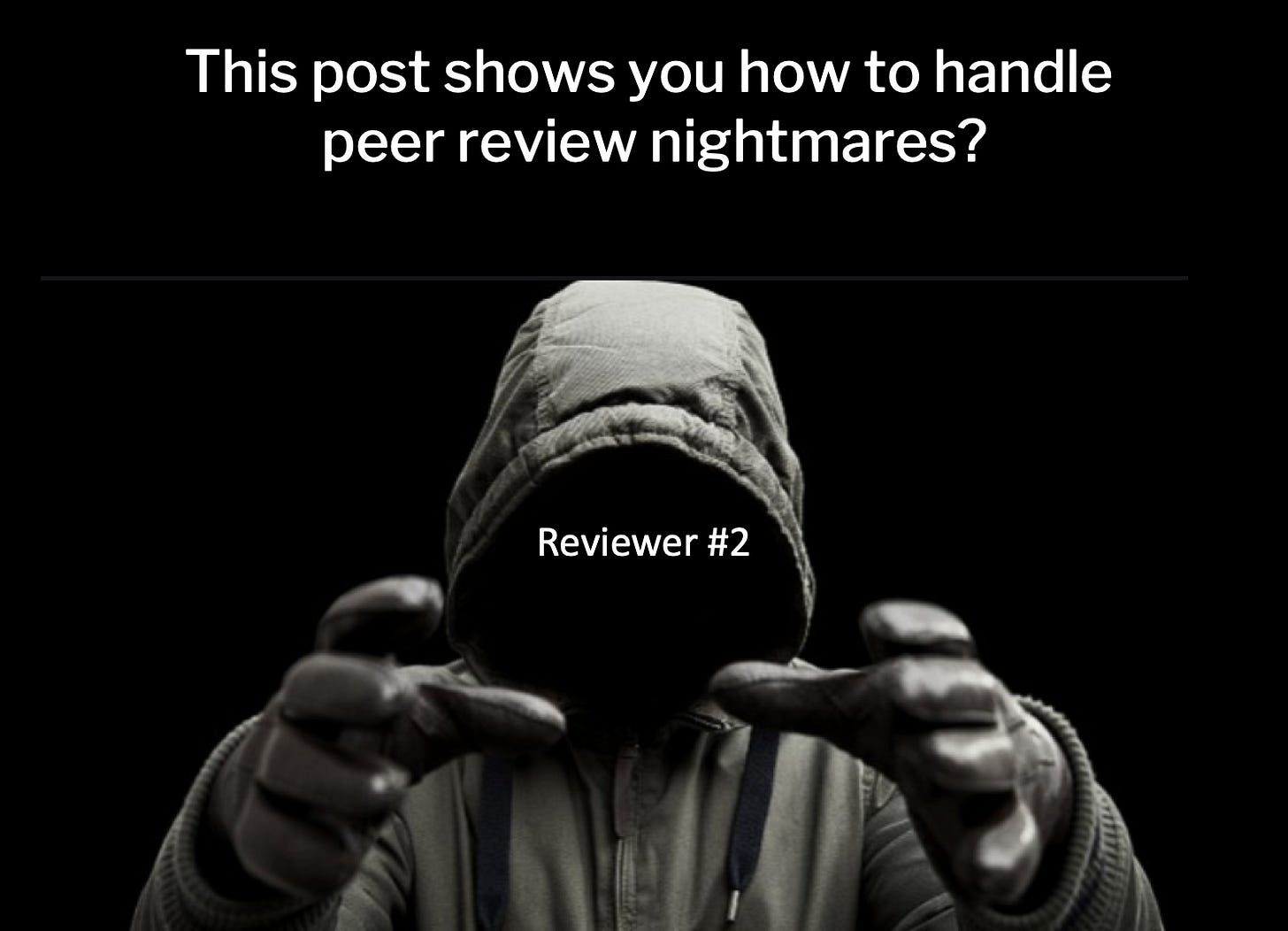How to turn peer review to your advantage as a researcher: Publisher and journal secrets revealed! 🤫 🙉
This post contains >25 graphics, 6 short videos and 4 full-length webinar recordings: The AIM of this post is to give information and help you LEARN to manage peer review as a submitting researcher.
Welcome back to the blog. Before we get started, did you know that Peer Review Week 2023 is coming up soon? I know, me either. This is happening September 25-29 this year, so stayed tuned for more information, events, and content around Peer Review, the process, and how to manage this as a researcher writing and submitting articles to Journals.
In the last post about peer review, we considered the different kinds of peer review journals use and also looked at HOW journal editors select reviewers for articles. If you missed this post, it’s linked here.
In this post, we’ll consider how to manage peer review as a submitting researcher. How to read emails that come back from journals (NB editors are clicking buttons in an online system, so there are clear patterns you can follow to predict the likely outcome of your article and what you need to do next). Editorial decision letters that come back on articles, what they mean and how to manage this process effectively. Following the advice in this article will ensure that your next paper has the highest possible chance of acceptance as it passes through peer review.
Imagine: You’ve sent a paper off to a journal and it’s gone out for peer review. Let’s start by considering how long it should take for an article to pass through peer review.
THE WAITING GAME: HOW LONG SHOULD PEER REVIEW TAKE?
One of the most common questions authors ask is — “how long should I expect to wait for my paper to pass through the editorial and peer review systems?” No-one likes to wait, but this often happens in the peer review process. One survey by showed that 37% of authors ended up waiting more than one year for their reviews to come back from a journal, while an astounding 10% had to wait for more than three years.
Obviously, this is not OK: This is your career, and you cannot afford to sit and wait for review comments to come back for an unacceptably long period of time.
The question is: What is an unacceptably long period of time?
To answer this question, let’s look at standard publication times. Under optimal conditions, it usually takes about one week for an editor to receive and process a submission and then another week to select reviewers and send the paper to them for comments. Allow around four weeks for the peer review process, and then give your editor another one or two weeks to process, write, and send you a report. These timescales mean that the whole process should take about seven or eight weeks if all goes smoothly.
Secrets revealed below about article publication times, examples of good and bad author response emails to editors, what editorial decisions actually mean, and how to write a winning journal editor response letter after you receive peer review comments! We’ll also show you HOW TO APPEAL to an editor if your paper gets rejected and you feel unfairly treated. Any questions? Click here to book a FREE 30-MINUTE consultation session with me (Dr Gareth Dyke) and we’ll talk about your publishing issues!!
** FREE WEBINAR: Thursday 31st August 0900 GMT → Sign up HERE **
** FREE WEBINAR: Thursday 31st August 0900 GMT → Sign up HERE **
Keep reading with a 7-day free trial
Subscribe to Writing and Publishing Research Papers: Tips n'Tricks to keep reading this post and get 7 days of free access to the full post archives.




